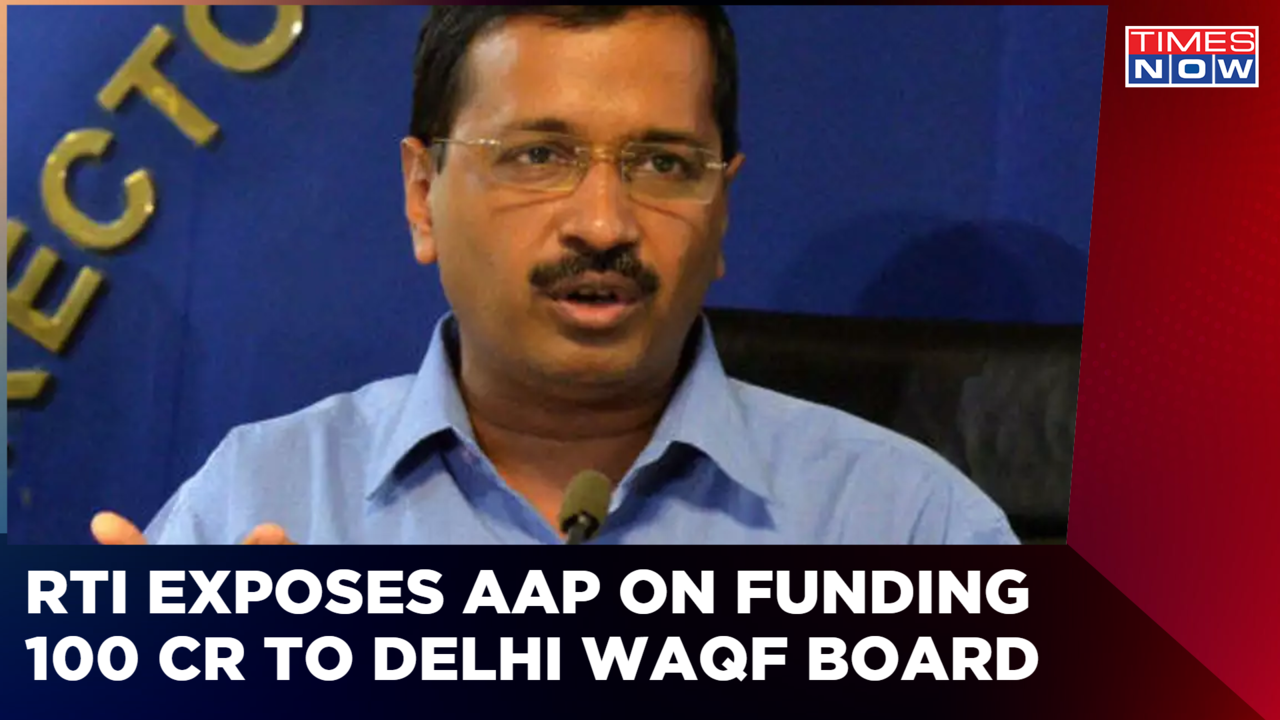


Bharatiya Janata Party member Nishikant Dubey has called for an investigation into the source of nearly 1.25 crore feedback submissions received by the parliamentary committee scrutinising the Waqf (Amendment) Bill in India. Dubey has raised concerns about the possible involvement of foreign powers like Pakistan's Inter-Services Intelligence and China, as well as fundamentalist organizations and individuals like Zakir Naik. He has expressed the need for immediate attention to the geographical origin of these submissions and emphasized on the importance of preserving the integrity and independence of India's legislative process.
BJP Member Raises Concerns over Massive Feedback on Waqf Bill, Calls for Investigation
Bharatiya Janata Party (BJP) member Nishikant Dubey has raised suspicion over the source of nearly 1.25 crore feedback submissions received by the parliamentary committee scrutinizing the Waqf (Amendment) Bill in India. Dubey alleges that foreign powers and fringe organizations may be involved in influencing the legislative process.
Background
The Waqf (Amendment) Bill, introduced in Parliament in 2021, seeks to give greater authority to the government in regulating and administering Waqf properties, which are lands and assets dedicated to Muslim religious and charitable purposes. The bill has faced opposition from Muslim organizations, who argue that it infringes on religious freedom and Wakf autonomy.
Concerns Raised
Dubey has expressed concerns that the massive number of feedback submissions, which were received through an online portal, may have been manipulated or coordinated by external entities. He points to the possibility of involvement by foreign intelligence agencies like Pakistan's Inter-Services Intelligence (ISI) and China, as well as fundamentalist organizations like Zakir Naik's Islamic Research Foundation.
Dubey has urged the parliamentary committee to investigate the geographical origin of the submissions and identify any patterns or suspicious activities. He emphasizes the need to preserve the integrity and independence of India's legislative process.
Top 5 FAQs and Answers
1. What is a Waqf?
A Waqf is an Islamic property or asset dedicated to religious and charitable purposes, such as mosques, schools, hospitals, and orphanages. Waqf properties are managed by trustees and protected under the law.
2. What is the Waqf (Amendment) Bill?
The Waqf (Amendment) Bill proposes to amend the existing Waqf Act of 1995. It gives the government greater authority over the administration of Waqf properties, including the ability to appoint and remove trustees, regulate financial transactions, and audit accounts.
3. Why has the bill been opposed?
Muslim organizations argue that the bill infringes on religious freedom and undermines the autonomy of Waqf institutions. They fear that the government will have excessive control over Waqf properties and use them for non-religious purposes.
4. What are the allegations of foreign interference?
BJP member Nishikant Dubey has alleged that the massive feedback on the Waqf Bill may have been influenced by foreign powers like Pakistan's ISI and China, as well as fundamentalist organizations like Zakir Naik's Islamic Research Foundation.
5. What is the next step?
The parliamentary committee is expected to consider the feedback received and make recommendations on the Waqf (Amendment) Bill. Dubey has called for an investigation into the source of the submissions before the committee finalizes its report.

As the West Bengal Assembly elections near, the political battle between Bharatiya Janata Party (BJP) and Trinamool Congress (TMC) has intensified on social media. Following the BJP's victory in Bihar, the party declared its hopes to defeat TMC in Bengal on a popular platform, while TMC leader Kunal Ghosh responded with a proverb highlighting the BJP's potential failure in Bengal. Despite BJP's confidence, TMC remains unfazed and asserts their strong hold in the state.

Congress leader and Leader of Opposition in Lok Sabha, Rahul Gandhi, was criticized by BJP's Shehzad Poonawalla for going on a jungle safari in Madhya Pradesh's Satpura Tiger Reserve instead of focusing on the ongoing Bihar elections. Gandhi had earlier claimed that "vote theft" had taken place in several states, including Madhya Pradesh. BJP's Poonawalla mocked Gandhi's "priorities" and referred to him as the "Leader of Paryatan and partying."

The sudden blast in Delhi that left several people dead has shocked everyone, including Bollywood stars Raveena Tandon, Thalapathy Vijay, Vineet Kumar Singh, and Riddhima Kapoor Sahni. While police are investigating all possible angles, including a terrorist conspiracy, Raveena's comments on social media suggest a link to terrorist activity. The celebrities also expressed their condolences to the victims and their families.

In a historic move, the Madhya Pradesh government has announced that it will be releasing 32 prisoners, including nine from tribal communities, on November 15 to mark Janjatiya Gaurav Diwas or Tribal Pride Day. This decision, initiated by Governor Mangubhai C Patel, aims to recognize and celebrate the contributions of tribal communities on the birth anniversary of their icon, Birsa Munda. This is the first time in India that prisoners will be released on grounds of good conduct while serving jail terms. However, it should be noted that the release will not apply to convicts in cases of rape or the Protection of Children from Sexual Offences (POCSO), as well as those convicted in multiple murder cases.

Today marks the birth anniversary of Birsa Munda, a fearless leader and freedom fighter who fought against British colonial oppression and the exploitation of tribal communities. His legacy of social justice and environmental protection continues to inspire movements in India today. As Jharkhand celebrates his birth anniversary, Birsa Munda's life serves as a reminder of the ongoing struggle for justice and sustainability.

Prime Minister Shri Narendra Modi will visit Gujarat on 15th November for various ceremonies and inaugurations. At a programme in Dediapada, he will inaugurate and lay the foundation stone of multiple development projects worth over ₹9,700 crore, with a particular focus on improving infrastructure and empowering tribal communities. These include residential schools, multi-purpose centres, medical institutions, and marketing centres, among others. The projects aim to uplift marginalized communities and promote the preservation of tribal culture and heritage.

As the NDA secures a clear victory in the Bihar elections, social media has been abuzz with questions about the whereabouts of Rahul Gandhi, the leader of the opposition and supposed face of the Congress in the state. With rumours circulating about him being in London or Muscat, there has been no official confirmation from the party or credible media outlets. This has sparked conversations about leadership and commitment within the party.

In a historic election year in Bihar, Gayetri Devi of the Bharatiya Janata Party (BJP) emerged as the winner of the Parihar Assembly seat in the Parihar Vidhan Sabha constituency. This marks Devi's third consecutive win in the region, solidifying the BJP's stronghold in the area. The live results and updates from the counting centers are being closely monitored and reported by News18, providing real-time coverage of the election results.

In a stunning comeback, the Nitish Kumar-led NDA is set to secure a massive victory in the Bihar elections. As counting progresses, the numbers show a clear endorsement of Nitish's social welfare model, particularly among women and marginalized communities. This has also given a boost to the Modi government and solidified the alliance's stronghold in the state. While the RJD tried to tap into student anger and expand their coalition, the NDA's targeted outreach to women, consolidation among upper-caste voters, and support from Chirag Paswan's LJP (R) created an unstoppable wave that the Grand Alliance couldn't counter. Today's victory not only secures Nitish's 10th term as CM, but also validates the BJP's decision to publicly endorse him as the NDA's chief ministerial face.

After a close race, Mangal Pandey of the BJP has emerged as the winner for the Siwan Vidhan Sabha constituency in the 2025 Bihar Assembly elections. The live update on the results, as reported by News18 reporters present at each counting centre, shows BJP taking the lead in the state. This marks a significant win for the BJP, coming after a defeat in the 2020 Bihar Assembly elections.